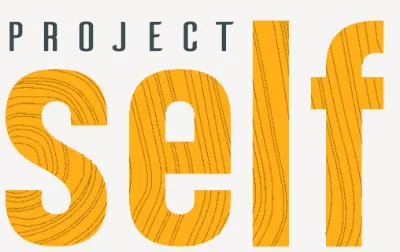What We Resist, Persists.
Resistance can be seen as a relationship between negative and positive energy. Some people may view resistance as strength of character. Resisting the pull of the things we know are bad for us but want anyway. A decision that reflects self restraint and control. An act of defiance and will power. What we want in that moment and a more refined capacity to step back and consider the implications. A refusal to comply or give in. Will power is perhaps more to do with not giving in, maintaining consistent actions in line with long term goals, than a going against, which is resistance and usually indicates struggle and often internal conflict.
Resistance describes a situation where energy is spent fighting the pull of something other; it’s a refusal to accept. It’s a defensive act. In other words, it is not a natural state of being, of going with the flow, following our desires or responding positively. There is tension in this act of opposing, withstanding. As Oscar Wilde said “I can resist anything except temptation”. His advice for this was to yield to temptation as the soul becomes sick with longing for the things it has forbidden itself. A battle between desire and rationality, between the heart and the mind.
Resistance can be a blocking process where we are unwilling or refuse to face or address something we are aware of, or are wilfully avoiding it. This denial is a resistance to self-responsibility. Again, a kind of turning away from our self which takes energy. Dissatisfaction – the state of wanting something to be other or different – also describes our resistance, or rejection of accepting of how things are. Acceptance is the path of least resistance. This does not equate to being apathetic in the face of our capacity to create change.
To resist how things are can lead to frustration and feelings of disempowerment.
To resist what we can chose to accept can lead to wasted energy and emotional turmoil.
To resist our desires can lead to unfulfilled longing and discontentment.
To resist our passions because of protection and fear is to keep our self in.
To resist taking self-responsibility for action towards change and challenge is to refuse to grow.
The first step to knowing whether our resistance is serving us, is to acknowledge we are feeling resistance and then to explore what we are resistant to and how that process plays out. If the competing forces are the pull of familiarity versus the different, for example. To recognise that we may be being challenged and are likely being pulled away. Away from adventure. From discomfort. Our mind is excellent at talking our self ‘out of’, or rationalising why we shouldn’t. Resistance is the push back against discomfort.
We may think we need to resist discomfort because of a myriad of excuses which may appear to be totally valid. Often because; we don’t feel up to it; not in the mood; not today; we can’t do it and wouldn’t be any good at it. But to learn how to open, watch how you close. See how you resist, not only temptation, but risk. Notice what you may continually resist. If resistance is a block. When a part of us says ‘no, I can’t’, it’s important to recognise that our resistance is to our self and that courage is being impeded by a self-imposed inhibition. If it’s head over heart, mind over what matters, know that.
Any form of negation such as ‘yes, but’ are learned responses to an alternative. We listen to the internal voices that protect us. We believe them and follow the excuses. So we don’t do whatever it is we’ve been offered and so maintain our convention, our beliefs. Resistance keeps us where we are. Remember those occasions where we refused an invitation and stayed in because we felt tired or low? We didn’t feel like it? And remember how on many of those occasions we felt slightly uneasy because we knew we’d possibly missed an opportunity, knew in our heart that we weren’t actually that tired, but that is was easier to stay at home in comfort? Then felt bad about our self because we felt we’d let our self down by taking the easy option.
If there is an internal dialogue going on ‘shall I, shan’t I’, there is probably resistance. When we decide ‘shan’t’ we’ve given doubts the loudest voice and let resistance subdue the spark of curiosity that is us. Where there is less mental clamour and we are more at peace with our decision, it’s more likely based on how we feel and what we need in that moment, and we are less likely to be in a state of resistance.
When we shrink from challenges which can draw us into a new experience, we shrink from an openness to life and we don’t always feel easy as a result. We berate our selves and so the process creates a cycle of negative internal monologue. Resisting what we need to accept creates the same cycle of wasted mental energy which prevents us from moving forward.
Resisting temptation does not make you a stronger person. Resilience does.
Resisting resistance makes you a different person.
